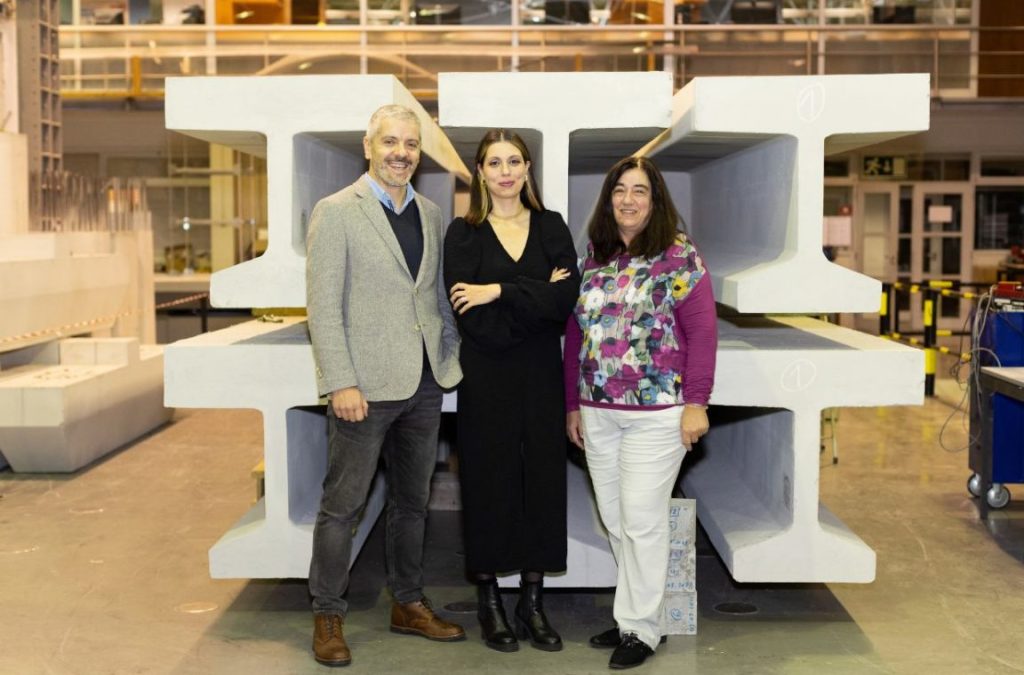Team from the Civil Engineering Department aims to develop more sustainable and circular cement mixtures for 3D printing.

A team from CONSTRUCT – the Structures and Construction R&D Institute of the Faculty of Engineering of the University of Porto (FEUP), has just won first place in the MIT Portugal Program’s competition for exploratory and innovative projects, worth around 50 thousand euros.
The focus of the award-winning project, whose principal investigator is Ana Mafalda Matos and which also includes FEUP Civil Engineering Department professors Mário Pimentel and Paula Milheiro, is the new generation of “digital concrete”, through the formulation and characterization of sustainable and circular cementitious materials.
“The introduction of digital manufacturing processes for construction, namely the 3D printing of cementitious materials (3DCP), brings benefits such as architectural freedom without the need for formwork, increased productivity, reduced costs and waste production, as well as workplace safety,” says the researcher and FEUP alumna.
However, 3D printing technology imposes new material requirements. 3DCP requires a consistency capable of maintaining the shape of the printed part in layers and without collapse, requiring more fine materials (cement and additions), which can increase CO2 emissions and energy consumption compared to traditional cast concrete.
And this is where “DigiCrete”, the award-winning research that stood out from the eight funded projects, comes in. “We want to develop greener, and equally robust, cement mixtures that meet the printing requirements through the significant partial replacement of Portland cement – a massive building material that meets society’s needs in terms of infrastructure, housing and improving living standards – with conventional and non-conventional additions (local and abundant industrial waste with no added value),” says Ana Mafalda Matos.
According to the researcher, “predicting the material’s behavior, based on mathematical models, will simplify design for 3D printing and also help establish printing criteria to be used as a quality control measure”
The research is being carried out at DEC’s Structures Laboratory and CONSTRUCT, with the participation of researchers Hessam Azarijafari and Randolph Kirchain from MIT (Concrete Sustainability Hub). The team combines a number of complementary skills, particularly in terms of materials and structures, mathematics applied to cementitious materials and life cycle analysis of materials and structures.
